Understanding ELD Exemptions: Who Doesn’t Need an ELD?
The ELD mandate governs the overall trucking industry but includes specific ELD Mandate exemptions, recognizing that not all drivers or companies have the same requirements. While most commercial drivers are now required to use an ELD, there are significant exceptions reflecting the diverse nature of the industry.
It is vital to understand that these exemptions stem from practical considerations and include a range of specifications for different business models and vehicle types.
What are the Electronic Logs Mandate Exemptions?
The definition of a Commercial Motor Vehicle (CMV) by the FMCSA (Federal Motor Carrier Safety Administration) dictates these exemptions. A CMV is defined as any self-propelled vehicle used on interstate highways to transport passengers or property that meets specific criteria:
- Vehicles used for transporting more than eight passengers for compensation.
- Vehicles used for transporting more than 15 passengers without compensation.
- Vehicles with a gross weight or combination weight over 10,001 pounds.
- Vehicles transporting a significant quantity of hazardous materials requiring a placard.
Under these criteria, the FMCSA has established exemptions catering to various operational scenarios, such as short-haul operations and vehicles older than a certain age.
Do Small Carriers Need to Comply?
Recent statistics suggest a gradual increase in ELD adoption among small carriers, though hesitance remains:
- A more recent survey might show that while initial adoption was slow, compliance has improved as carriers recognize the benefits of ELDs in terms of compliance, safety, and logistics management.
- Specific surveys or polls could indicate the current state of ELD adoption among small carriers to reflect the latest industry trends.
ELD regulations apply to carriers and drivers who are required to maintain RODS (Records of Duty Status) unless they fall into one of the above exemptions.
The Electronic Logs Mandate Exemptions include:
No RODS – Drivers who primarily use timecards to track their time and are engaged in non-long-haul operations are exempt from using an ELD. This includes short-haul drivers who operate within a specific radius and stay within certain limitations. However, if a driver exceeds these limitations, an ELD becomes mandatory.
Limited RODS – Drivers who need to maintain RODS for less than eight days in a 30-day period are exempt from using ELDs.
Drive-away or Tow-away Operations – Drivers operating vehicles solely for drive-away and tow-away purposes are exempt from the ELD mandate. This reflects the unique nature of their operations, where vehicles are not typically used for freight or passenger transport but are being relocated.
Additional Exemptions for Paper Logs:
- Run logs no more than 8 out of any 30-day period: Suitable for drivers who occasionally exceed the limitations of other exemptions, like short-haul drivers making a few longer trips in a month.
- Driveaway-towaway operations: Exempt if vehicles are delivered from manufacturers to dealers or similar scenarios, not carrying freight or passengers for compensation.
- Short-haul operations within 100 or 150 air mile radius: Drivers who operate within a 150-air-mile radius of their base and return home daily.
- Agricultural and specific industrial operations: Special provisions cover drivers in agricultural or specific industrial sectors, like those transporting livestock or operating vehicles like concrete mixers or oil field servicing equipment, acknowledging the unique needs and irregular patterns of these industries.
Understanding The ELD Exemptions of Vehicles Older Than 2000 Model-Year
Vehicles manufactured before the year 2000 are exempt from the ELD mandate due to the challenges associated with retrofitting older technology with modern ELD systems. These vehicles often lack the necessary electronic control module (ECM) to support ELD connectivity.
Considerations for Fleets with Older Vehicles:
- Fleets operating older vehicles must still comply with hours-of-service (HOS) records, typically using paper logs or alternative methods approved by the FMCSA.
- It’s essential for fleets using older vehicles to consult with the FMCSA or a regulatory expert to ensure compliance through acceptable documentation methods.
Exemption Details for Older Vehicles:
- The FMCSA allows: Vehicles without an ECM or compatible engine data connection, specifically those older than the year 2000, to use alternative ways to log HOS.
- Regulatory Guidance: Always verify the latest FMCSA guidelines and exemptions, as regulatory changes and updates to requirements may affect compliance strategies.
Overview of Radius Exception Short-Haul/100 Air-Mile
There are specific conditions to qualify for the short-haul ELD exemptions from §395.1(e):
- Conduct business within a standard work-reporting location 150 air-miles from or for non-CDL drivers and potentially a 100 air-mile radius for CDL drivers. It’s crucial to consult the FMCSA website for the most current guidance on the radius specific to your driver’s license type.
- Start and return to the same place within 12 consecutive duty hours.
According to FMCSA requirements, an air mile is equal to 115.08 statute miles (185.2 kilometers) and is based on the 6,076 feet (1,852 meters) global nautical mile.
For short-haul drivers, these additional regulations also apply, and these ELD mandate exemptions also extend to short-haul drivers:
- Cannot exceed 11 hours of driving time.
- Must log at least ten consecutive hours off duty after each shift.
If a driver is unable to satisfy these requirements, a logbook for the day will need to be completed as the vehicle is classified as a Commercial Motor Vehicle (CMV). Thus, the truck and vehicle are subject to an inspection of the vehicle according to §§396.11 and §396.13. If they fulfill the requirements of a CMV collectively, it will become necessary to have and store a DVIR (Driver Vehicle Inspection Report).
Before any operation, the previous Driver Vehicle Inspection Report (DVIR) must review the next time the vehicle or trailer is used. The log records and records of the inspection report must be stored and submitted to law enforcement as well as at the time of a carrier audit.
Understanding 150 Air-mile Radius
The short-haul ELD mandate exemptions also cover several non-CDL drivers. To qualify, drivers must:
- Return to the usual reporting place at the end of each duty trip.
- Conduct operations within a 150-mile radius of the area to which they report and are discharged from work.
Moreover, they should not:
- Drive any vehicle requiring a CDL.
- Drive on two days of any seven consecutive days after 16 hours of duty.
- Drive on five days of any period of 7 consecutive days after 14 hours of duty.
Could a Small Vehicle qualify as a Commercial Vehicle?
Understanding the Difference Between GVWR and GCWR
GVWR (Gross Vehicle Weight Rating) is defined as the maximum permissible weight of the vehicle when fully loaded, as specified by the manufacturer. This includes the weight of the vehicle itself plus:
- The body
- The engine
- The chassis
- Passengers
- Engine fluids
- Freight weight
- The driver
- Fuel and accessories
GCWR (Gross Combination Weight Rating), on the other hand, refers to the maximum permissible weight of a towing vehicle and its attached trailer, which includes:
- The weight of the towing vehicle
- The weight of the attached trailer
- The passengers
- The driver
This distinction is critical in determining whether a vehicle qualifies as a Commercial Motor Vehicle (CMV). Vehicles typically involved in commercial activities vary widely, ranging from semi-trailers to specialized vehicles like dump trucks and concrete mixers.
A vehicle and its load qualify as a CMV if the combined GVWR or GCWR exceeds 10,001 pounds, or when the vehicle itself is involved in interstate commerce as defined by the FMCSA. This classification determines if the vehicle, regardless of its size, must adhere to CMV regulations and possibly ELD mandates.
Commercial Vehicle Compliance Criteria
Should your vehicle, when combined with its typical load and trailer, meet or exceed the GVWR/GCWR threshold of 10,001 pounds, it is subject to the regulations set forth in §390.5. This includes adherence to HOS (Hours of Service) and ELD (Electronic Logging Device) requirements, applicable whether the vehicle is loaded or empty.
Ensuring Compliance
If your vehicle is categorized as a CMV, even if it’s as small as a pickup truck, it’s crucial that the driver abides by all relevant DOT regulations. This includes compliance during all operating times, and the vehicle must display USDOT identification. It is also required that a Driver Vehicle Inspection Report (DVIR) be completed prior to use and after any substantial trips to ensure the vehicle remains safe and compliant.
APA Exceptions
An exemption from the ELD directive sought by the American Pyrotechnics Association (APA) confirmed by the Federal Motor Carrier Safety Administration (FMCSA).
- Throughout the Independence Day season, the group asked for the ELD mandate exemptions for APA member companies.
- The agency confirmed that these companies would continue using paper records for a certain period instead of an ELD.
- FMCSA determined that the exemption terms and conditions ensure a level of safety equal to, or higher than, the level of protection attained without the exemptions.
- The agency has added “sufficient” safety ratings to all carriers concerned based on compliance reviews and is therefore not subject to any “impending danger” or other out-of-service orders.
- For last year’s Independence Day holiday, APA enjoys a comparable exemption.
Exemption Extension Details
Full Compliance
It has been clarified by the FMCSA that fleets are no longer allowed to use grandfathered AOBRDs (Automatic On-Board Recording Devices) beyond December 16, 2019. Consequently, all drivers and carriers must now utilize self-certified ELDs (Electronic Logging Devices) that are registered with the FMCSA to ensure full compliance with regulations.
Important Things to Remember
Obligation to Obey HOS Guidelines Despite ELD Exemption
- While certain operations are exempt from the ELD mandate, it is critical to remember that adherence to Hours of Service (HOS) regulations is mandatory. Operators must maintain simplified records even when exempt from using ELDs to ensure compliance.
- Trying to qualify for these ELD exemptions does not imply an exemption from duty monitoring records, highlighting the importance of maintaining proper documentation at all times.
- Operators with ELD exemptions must keep paper logbooks when legally required and ensure they are available for inspection.
Using ELDs When Exempt is Not Prohibited
- Many exempt fleets and owner-operators opt to use ELDs despite their exemption status, appreciating the multiple benefits, including:
- Simplification of compliance processes.
- Enhanced accuracy in log maintenance.
- Significant reductions in paperwork.
- Efficiency improvements leading to cost savings.
- Improved predictions on arrival times for commercial loads.
- Enhanced ability to maintain and improve CSA (Compliance, Safety, Accountability) ratings.
- Comprehensive monitoring of vehicle usage and location.
Using ELDs can also enhance safety, as it allows operators to stay within legal driving limits and provides data that can help optimize routes and schedules.
ELD Mandate Exemptions Are Not Permanent
While current exemptions provide temporary relief from ELD requirements, these are not expected to remain indefinitely. The landscape of compliance is evolving, and maintaining full compliance with the ELD mandate is anticipated to become the standard, promoting fewer compliance headaches and enhancing overall operational efficiency.
Get an ELD Regardless
That’s the thing – even if they are not mandatory, ELDs do a great job.
And, of course, if you can afford to install them, from a financial and technical perspective, this is certainly something that you are better off trying out.
These are devices that would provide you with a chance to save a substantial amount of time, effort, and money. An ELD is going to give you access to a lot more data compared to whatever you had before that.
Fleets and owner-operators will enjoy the way their driver is operating the truck and have a direct overview of the performance of the entire fleet. You would be able to capture hard braking, excessive and unnecessary long idling times, and improve the time spent on the road.
And this is going to enable you to reduce the overall cost and spending on fuel as time goes by. ELDs are also going to help you reduce violations for reporting as well as the HOS, which would lower the overall costs.
FAQs on ELD Mandate and Exemptions
What is the ELD mandate?
The Electronic Logging Device (ELD) mandate is a federal regulation requiring most commercial vehicle operators to use ELDs to accurately record driver hours of service (HOS), promoting compliance with HOS rules to prevent driver fatigue.
Who needs to comply with the ELD mandate?
Most drivers and carriers who are required to maintain Records of Duty Status (RODS) must comply with the ELD mandate. This includes commercial trucks and buses engaged in interstate commerce.
Are there any exemptions to the ELD mandate?
Yes, there are several exemptions, including:
- Vehicles manufactured before 2000.
- Drivers who maintain RODS for no more than 8 days within a 30-day rolling period.
- Driveaway-towaway operations if the vehicle being driven is part of the shipment.
- Short-haul drivers who operate within a 100 or 150 air-mile radius.
What happens if I’m exempt from the ELD mandate but occasionally need to keep RODS?
If you’re exempt but need to keep RODS more than 8 days in a 30-day period, you must use an ELD for that period. For short-haul exemptions, exceeding the air-mile radius or duty time limits more than 8 times in 30 days necessitates ELD use.
Can I use paper logs if I’m exempt from the ELD mandate?
Yes, drivers who qualify for an ELD exemption can still use paper logs to record their hours of service instead of using an ELD.
Do ELD exemptions apply to drivers in all states?
While the ELD mandate is a federal regulation, exemptions apply universally across the United States. However, drivers should verify if their state has additional requirements or regulations.
How do I know if my vehicle is exempt due to its manufacture date?
Vehicles with a manufacture date before the year 2000 are exempt from the ELD mandate. The manufacture date can usually be found on the vehicle’s registration, title, or inside the door frame.
What should I do if my operation status changes and I no longer qualify for an exemption?
If your operation changes and you no longer qualify for an exemption (e.g., you start driving beyond the short-haul radius more frequently), you must comply with the ELD mandate and install an ELD in your vehicle.
Can I switch between being exempt and needing an ELD?
Yes, depending on your operation. If you occasionally exceed the criteria for an exemption, you’ll need to use an ELD during that time. Once you return to operating within the exemption criteria, you can revert to your previous logging method, provided you accurately track these changes.
How does the ELD mandate impact team driving?
Team drivers must ensure that the ELD accurately records each driver’s hours separately and complies with HOS regulations. ELDs must allow drivers to log in and out to attribute driving time correctly.
Are rental vehicles required to use ELDs?
Yes, rental vehicles used for more than 8 days are subject to the ELD mandate, unless they fall under another exemption category.
What are the penalties for failing to comply with the ELD mandate?
Non-compliance with the ELD mandate can result in fines, out-of-service orders, and impacts on a carrier’s safety score.
Conclusion
The ELD mandate is about making roads safer and keeping drivers honest about their hours. It helps prevent tired driving and makes sure drivers follow the rules.
While some drivers and companies don’t need to use ELDs because of exemptions, it’s important for everyone to know if they have to use them. Using ELDs can make work easier, improve how well you follow rules, and even reduce costs.
For help with ELD rules or to find out more about exemptions, check the FMCSA website or talk to ELD providers. Getting advice from experts can also make sure you’re doing everything right.
By using ELDs and understanding the rules, truck companies and drivers can make their jobs smoother and the roads safer for everyone.
For tailored guidance on ELD compliance and exemptions, contact us or fill out our consultation form to explore how we can support your operations.








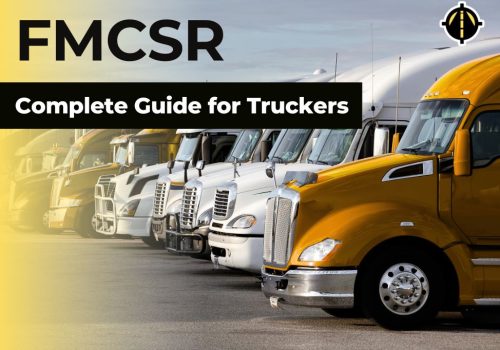
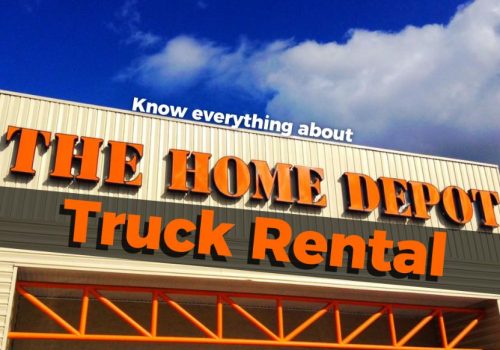
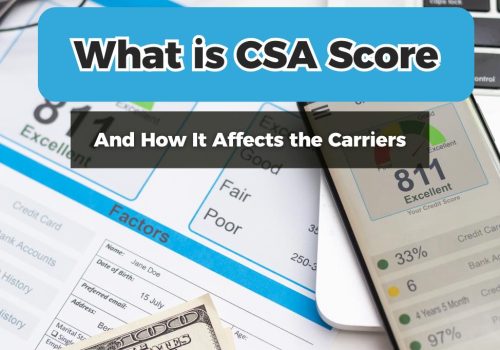
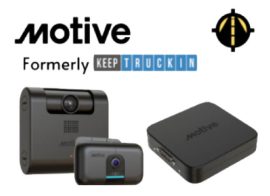
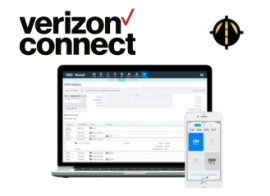


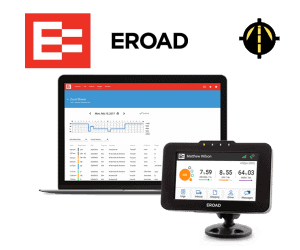
 Answer 5 simple questions to request a
Answer 5 simple questions to request a